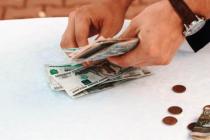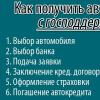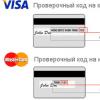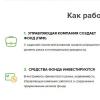Today there are many ways to save accumulated savings. Many people are still interested in the question of where to keep money at home so that you can not worry about their safety. Which caches are practically win-win, and which are the most dangerous you will learn from this article.
The best places to store money at home
Those who want to save their capital in their own housing should come up with reliable places. In fact, there can be a lot of options. The main thing is to hide money in something not the most noticeable and not to put it in plain sight.
Some citizens come up with very tricky ways to keep money at home, for example:
Behind the wallpaper;
- in a toilet tank, wrapping them in a waterproof wrapper;
- in the plastic handle of the mop (the option is suitable for large bills);
- in the piano;
- in an old shoe;
- in a vacuum cleaner (in a trash bag);
- in a buried jar in the cellar;
- in a roll of toilet paper, etc.
Those who want to understand how to properly store money at home should know that the best way is a safe with high level protection, both physical and intellectual. This means that it must be very strong and have a reliable code. It is desirable that the item has multi-level protection to reduce the chances of opening it to zero.
Feng Shui experts recommend storing savings in red envelopes or bags in the southeastern part of the house. It will be great if you place a special frog next to it - a symbol of family wealth. So luck will accompany the owner, preserving and increasing his wealth.
Where should funds not be kept?
Unfortunately, keeping savings in your own home is quite difficult due to the high likelihood of theft. Therefore, those who want to understand where it is better to keep money at home should know where thieves will look first of all in case of penetration:
Wardrobes, bedside tables and all the items that are there. Criminal investigators consider these places the most risky for savings;
- Books in the home library. Revising each volume is not a problem even for a novice thief;
- containers with cereals - a common storage for many Russian citizens, so all jars will be inspected by an outsider;
- places under the mattress and inside it - a hiding place of 9% of conscious citizens, which is known to everyone who wants to cash in on someone else's expense;
- Appliances(refrigerators, microwaves, coffee makers) - excellent storage not only according to the owners of the house, but also scammers;
- interior decorations: vases, figurines, chests and other attractive objects will definitely be carefully examined;
- mirrors, paintings - beautiful hiding places only in the world of cinema, but not in reality.
Storing savings in an apartment, office or hotel
It would seem that it is much easier to hide cash in a private house than in an apartment, hotel or office. In fact, this is not at all the case. Experts of the GPU of the Ministry of Internal Affairs of the Russian Federation recommend many reliable hiding places:
Socket. No one wants to risk their life and the sane thief is no exception. The owner must turn off the power, remove the plastic cover from the outlet. Under it there is a hole that allows you to hide any treasure. For security reasons, cash must be wrapped in a rubber sheet.
Those who want to understand how to properly store money at home, in an apartment or office should know that people who have no idea about electrical engineering should not use this method. Otherwise, there is a risk of short circuit.
Float cistern in the toilet. It is a plastic product about the size of a fist. It can successfully accommodate twisted banknotes. To do this, first turn off the water, then unscrew the item. Folding one banknote at a time is very troublesome, so you can cut the float, put savings in it and glue the seam (with a lighter, soldering iron or glue). The disadvantage of this method is that if the owner needs money, it will not be easy to get it. There is also a risk of disrupting the displacement and creating an obstacle to the normal operation of the toilet. In a tabletop with metal edging. You should remove the sides and make a few holes in the end with a drill. Use a file or jigsaw to create a narrow rectangular vault.
Another great way to keep money in an apartment is fake outlet. You just need to make a box of plywood, put valuable items in it and mount it on the wall.
There are a number of other great places to save money:
A pipe, additionally built into the bathroom and not violating uniform style interior;
- sofa foam, but the owner should first remove the cover, then pull out part of the foam rubber and make a hole where the hiding place will not be noticeable during a cursory examination. You can nail the upholstery with a stapler;
- magnetic tape holding the refrigerator door. The owner must peel back the rubber base, make a subtle cut with the blade, and pull out a few magnets. Instead, hide folded banknotes;
- curtain rod;
Advantages and disadvantages of keeping money in your home
We considered options where it is strictly forbidden to keep money in apartments. But even if they managed to come up with a reliable source, the owner will receive three advantages:
Quick access to cash;
- the ability to get funds at any time, recalculate, add new ones;
-n can change storage if necessary.
However, the disadvantages are more significant:
Constant depreciation of money due to the rapid growth of inflation;
- under the influence of an impulse, it is possible to unjustifiably spend all the savings;
- the risk of losing all savings due to the invasion of a thief.
Warnings against the intrusion of unauthorized persons in housing
It should be remembered that the majority of burglaries occur through the fault of the owners who let criminals into the premises, who introduced themselves as employees of special services, police, etc. To avoid cheating, you must follow very simple rules:
Check ID.
- Pay attention to branded clothing;
- Call the service from which the person came, and clarify whether he works in it.
- If a fraudster is found, for any reason, go to the neighbors, lock the door with a key and call the police.
Now you know a lot about savings stashes. By following all the above recommendations, it will be much easier for you to save your wealth. However, in order not to lose its real value and increase profits, it is best to contact reliable banks with many years of experience and a positive reputation among customers.
Russians are better off trusting the ruble. They must carry their modest savings to banks and make deposits in national currency. This opinion is shared by the President of Sberbank German Gref. Lenta.ru talked to experts and analysts and received some advice on saving savings. There was no place for the ruble in the recommendations of specialists.
Ruble under the pillow
Non-professional investors (that is, the majority of the Russian population) should not play with currencies and seek their fortune in euros or pounds sterling. The best way keep small savings - leave them in rubles. About this Gref on July 6 in the course of communication with users of social networks.
He also warned Russians against keeping money "under the pillow", as even small amounts must be in motion. Most reliable tool in this case - bank deposits, Gref believes: “Savings in the amount of 100 thousand rubles should be kept in rubles. The ruble still tends to strengthen.
Really, Russian currency V recent months strengthened from 75.5 rubles per dollar in January to 64 rubles in July. The exchange rate rose by 15 percent (which, by the way, greatly worries exporters and economic recovery).
In such conditions, it seems that the ruble has a margin of safety, that it can grow further. But it is worth remembering that the national currency has been in free float for almost two years. Almost any change in external conditions leads to its fluctuations. To protect yourself from them, you need to work out a personal financial strategy, excluding the ruble, or scatter at least part of the money among other currencies, precious metals and even securities.
Personal investment program will vary depending on the amount of money available.
100 thousand rubles
Holders of such an amount should pay attention to two possibilities: either buy foreign currency or open a deposit (however, both currency and deposits remain relevant with any savings - just the larger they are, the wider the possibilities for choosing different financial products).
First, about games with currency. Experts interviewed by Lenta.ru advise making a choice in favor of the dollar. Rubles are needed for everyday consumption, but it is not worth saving in them.
“With small savings, it is better to keep most of the funds in the currency in which you spend. You can buy currency for holidays throughout the year. Otherwise, it may turn out that you were about to leave, and it was at this moment that the ruble weakened greatly, ”recommends Bogdan Zvarich, an analyst at the Finam group of companies. In general, he believes that it is better to break down savings into different currencies - the dollar looks the most interesting, but towards the end of the year it may fall in price and go to the mark of 60 rubles.
“The simplest and safest strategy is diversification. A third of the funds should be kept in rubles, a third - in dollars and a third - in euros. Changes in the exchange rate of one currency will be offset by fluctuations in the exchange rates of others. You will not earn much on revaluation, but you will not lose on exchange rate difference”, - comments a product analyst investment company Exante Daria Kirilochkina. She herself prefers dollars - historically, they look like a more attractive asset than rubles. There are also advantages over the euro - one nation united by common interests stands behind the dollar, while internal conflicts are constantly going on in the EU, reminds Daria Kirilochkina: “If necessary, the Americans will always quickly come to an agreement within the country. Recall, for example, the story of raising the debt ceiling. The European Union will argue and swear for a long time, and the euro is weakening against this background. Brexit is great example realization of such risks.
“Now is the perfect time to buy dollars. Goal by American currency- 73-75 rubles,” predicts Mikhail Krylov, director of the analytical department of the investment company Golden Hills-Kapital AM.
Now about contributions. As you know, it is almost impossible to earn something on them, they are created to protect savings from inflation. To date, the annual inflation rate is 7.5 percent. So that the money does not depreciate, you need to look for a deposit with a rate above this level.
Hello, friends!
I have 2 news for you. One of them, as usual, is good, and the other is not very good. Let's start with good or even great news. If you are wondering where to keep money, it means that you have it. And this, you see, is wonderful. The bad news is that if this question is relevant to you, then you have not yet found the answer to it. Is that bad.
Our task is to find not only the answer to the question of where to store, but also how to increase your savings. I will share my experience. It's still small, but it's there. The fact is that by virtue of my profession (I am an economist and copywriter) I read a lot of professional literature. The topic of personal finance has been of great concern to me lately.
I will not take on the role of a financial consultant, but I will give advice so that you, too, take the path of saving and increasing own funds. Believe me, it is not as difficult as it seems. And at the end of this path, only the brightest prospects are visible.
True, each person sees only what he wants to see. Therefore, I foresee negative responses to the article. I have heard more than once that with our life and our salary, it’s not worth even thinking about saving money.
Friends, if you cannot solve the problem of personal growth once and for all, then there are a huge number of trainings that will help raise self-esteem. Everyone can change his life the way he wants it and when he wants it. The key word is WANT. I wanted to at 40 and did it. It is a pity that the awareness of change did not come sooner.
If after that you remain whining on the couch, then let us leave you there. We go further only with readers who want to make an attempt to change something in their lives.
Why was such a long introduction necessary? Because many of us are still completely wrong about money. They are afraid large sums are shy of them. They believe that wealth and prosperity is not for them. And for whom then? Nobody is born with the karma of being poor. We are driving ourselves into a dark corner. Let's take a look at it now.
Why can't you keep money at home?
According to Rosstat, in 2017 the volume cash savings population grew by 13.8% and continues to grow. But where is all this money stored?

Sociological surveys are often conducted in Russia, including on ways to store money. The Russians have money, and they are trying to save and accumulate it. But preference is still on the side of cash.

According to a survey by the Romir research holding, every tenth Russian prefers to keep free money at home.
You will not find a single financial expert who considers this method the only possible and safe one. Should you entrust your savings to a nightstand or toilet bowl? Let's take a look positive sides such storage:
- Money is always at hand and at any time you can take it for urgent needs.
- You alone are responsible for their safety and do not depend on financial structures which may go bankrupt or lose their license.
That's where the pluses end.

- Keeping money at home is dangerous. Thieves can get in, and you will lose all your savings. They know better than you where most Russians keep their money. You are unlikely to impress them with your originality.
- Any disaster (fire, flood from neighbors, explosion of household gas) will lead to the same deplorable results.
- You can forget where you hid the money.
- Family members or yourself can accidentally throw away or ruin bills.
- And most importantly: money will depreciate every year as a result of inflation. And when investing them at interest in a bank or other investment instruments, they can generate income and quite good.
No one says that you don't need to keep cash at home at all. Need, but only a small amount for weekly running costs. In the wallet for a long time they should take their place bank cards and change for travel.
If not at home, then where is it safer and more profitable to keep free money?
Personal finances and ways to save them
Before answering this question, we will divide personal finance into separate categories.
Money for current needs
This is the sum of your monthly expenses. If you don't know them, you can help. It will take into account not only all your expenses, but also income. You can do this in many ways: write it down on paper, put it on spreadsheets, or use special programs.

It took me a couple of months to get a complete picture of my family income and expenses. Then I was able to start planning a month ahead. Now the whole family is involved in the discussion of future expenses. The daughter says that she wants new jeans, and the husband needs to pass the MOT of the car. Please add it to next month's expenses. But, if, in addition to jeans, you also need a fashionable blouse, then what article can we donate?
What is the best way to store this type of finance?
- Partially in cash at home with all security measures.
- At the bank in a savings account. It must be replenishable and be able to be withdrawn so that you have the money at any time. The main disadvantage of this method is that you depend on the operating mode of the bank.
- Banking. It is on a debit card that you should keep money for current expenses, and not on a credit card. We have repeatedly spoken about the great temptation to use other people's money. The main advantage of a debit card for storing money is its mobility and independence from the bank's operating mode.
The question is often asked, what is the best way to save money? In what currency? Experts have already answered this question. Currencies must be different: rubles, dollars, euros. You can buy yuan, swiss francs or pounds sterling. But keep in mind that this method is not entirely successful for storing current finances.

First, it is better to use long term, because you can lose a lot when converting currencies. Secondly, you also depend on the operating mode of the exchanger.
How much money can be kept on the card? As much as you want. There are limits on cash withdrawals, on transfers, but not on storage. And do not forget that the state guarantees only 1,400,000 rubles. refundable in the event of a bank failure.
The next category of personal finance, and one of the most important, is your reserve fund or airbag. This is money for emergency expenses. For example, you needed money for an operation, your car broke down, your neighbors flooded, or you lost your job.
Stock financial strength should be such that you can live 3 - 6 months on your savings. For example, if you spend 40,000 rubles a month, then the reserve should be in the amount of 120,000 - 240,000 rubles.

What are the requirements for this type of savings:
- Mobility, i.e. you must be able to quickly get your money at your disposal. Therefore, savings or savings accounts in the bank are suitable and debit cards. Try to match deposits with monthly capitalization percent and with the possibility of replenishment and withdrawal. Then you can not only save, but also save. A debit cards It is better to choose with interest on the balance.
- This money should be kept separate from current money. This is your emergency reserve, which should be spent in case of emergency. If you haven't created an airbag yet, this is the first thing you need to start doing right now.
- The reserve fund on one account should not exceed the amount of 1,400,000 rubles. Because it is this compensation that the state guarantees you in the event of bankruptcy of a financial institution.
1 way. Traditional storage in rubles or currency on deposit. Deposit requirements:
- the ability to replenish, but not withdraw;
- monthly interest capitalization;
- the interest rate is higher than inflation;
- the reliability of the bank;
- amount up to 1,400,000 rubles. (if more, split into several accounts and preferably in different banks);
- separate deposit for each goal.
2 way. mutual funds.
These are shares investment funds. In this case, you act as an investor, because you will invest your money in securities, real estate, gold and other assets in order to make money on it.

The main advantage of mutual funds is that you can be an absolute beginner in stock market to start investing. All work on market analysis, selection of optimal solutions and the process itself will be undertaken by the management company. Your task is to determine how much risk you are willing to take. Based on this, a specific mutual fund is selected.
Experts advise starting investing in mutual funds with an amount of at least 50,000 rubles. The choice of management companies in Russia is quite large. About cooperation with foreign companies it is worth reading books on investing or talking to financial advisers.
Investments in mutual funds bring income in the medium or long term. There is no need to deposit your funds for 1 or 3 years. The market is constantly in motion, up and down. And only with accumulation over a period of 3 years you will get the expected result.
What does investing in mutual funds give? First, the income is higher than on deposits in a bank. Second, risk diversification. You do not invest in the securities of one company; there can be several dozen such companies in one mutual fund. The activities of management companies are strictly regulated by the state, they are not allowed to invest money anywhere.
3 way. Individual investment account (IIA).
Many big banks Russia provides services for the opening of IIS. What it is? This is a special replenished account, the money from which you can through brokers or management company invest in stocks, bonds, real estate.
What generates IIS income? Due to the growth in the value of those securities that you purchased and due to the return of income tax individuals(13%) from the state.
The minimum term for which an IIS is opened is 3 years. In this case, you are entitled to a personal income tax refund.

For long term goals
In addition to short-term goals, each family, I believe, should have long-term ones. For our family, there is one long-term goal. This worthy life retired. The state cannot, and should not, provide for our 100% maintenance at a disabled age. But it is obliged to create the necessary mechanisms so that a person can provide for himself in old age.

Unfortunately, our state and our citizens are only at the beginning of this journey. While people in developed countries start saving for retirement from the moment they start working, most Russians try not to think about it at all.
As François Rabelais said, "It's not about running fast, it's about running early." These words illustrate such a concept as time. It can solve the problem of secure old age in the future. The question is how to use it correctly.
What can we do now? What mechanisms of savings and accumulation of funds will be effective? Financial advisers may offer different tools for investing money in a future retirement, but they all agree that these strategies should be as risk-free as possible.
Option 1. Savings programs of insurance companies.
This investment instrument, which allows you to create pension savings. Usually, Insurance Company guarantees the safety of funds and a minimum income. At the same time, the investment strategy in this case is the most conservative, because the state controls the investment of funds and allows it to be done only in the most risk-free assets.
In addition, the insurer provides life and disability insurance to the client. The duration of the program is from 5 to 35 years.
Accumulations are inherited in an accelerated mode, are not divided during a divorce, and are not subject to arrest. You are entitled to a refund income tax from the state.
Option 2. Individual pension plan.
Very similar to funded program in insurance companies, but does not provide for insurance. Opens in non-public pension funds. You independently determine the size and regularity of contributions. The fund invests your funds in conservative (risk-free) assets and accrues income (minimum) to you.
The size of the pension depends on savings. And just like in the previous tool, savings are inherited, not seized and not divided upon divorce.
Option 3. Gold, platinum, silver and other precious metals.
There are three ways to invest in precious metals:
- Purchase of physical gold and other metals in the form of bars, coins. Be prepared to pay 18% VAT. Unforeseen problems may also arise.
My friend bought a gold bar from the largest bank in Russia. It was in the package and was not opened by it during the entire period of storage. During the sale in the same bank, a commission was created to assess the condition of the ingot, which found scratches (I remind you that the ingot in the package was not opened by the owner and lay in a safe for several years without moving). The cost was immediately drastically reduced.

- Impersonal metal account (OMS). You can buy and sell as many precious metals as much as you want, never holding them in your hands.
- Investments in precious metals funds. Your income depends on the rise in their prices.
Option 4. mutual funds. To save and accumulate money for retirement or buying a house by the sea, you can choose different funds: from conservative to aggressive.
Option 5. Acquisition of real estate. This is our citizens' favorite way of investing. Is it safe to keep money in real estate? It all depends on which one. Experts have not considered this option as highly profitable and risk-free for a long time. Real estate prices do not always rise, and sometimes fall catastrophically.
You can invest in real estate mutual funds. Firstly, this is not one object, but a whole series. Secondly, professionals manage the fund. Thirdly, you do not need to have a large sum to buy.
Conclusion
In conclusion, I want to give the figures that one of the first in his book gives financial advisors Russian Vladimir Savenok. This is the answer to the question, where do the rich keep their money?
- 25% - pension plans,
- 20% - securities and investment funds,
- 20% - real estate,
- 20% - business,
- 15% - other, including banks.
There is something to think about.
The art of preserving and increasing one's finances should be instilled from childhood. That is why, I think, it is necessary to pay as much attention as possible. Then, perhaps, we will be more calm about our future. What do you think about it?
“Citizens, keep money in the savings bank if you have any!” - the hero of the famous Russian comedy "Ivan Vasilyevich Changes His Profession" - the incomparable Georges Miloslavsky, calls on the viewer. The usefulness of such advice is especially evident in the light of what this very character is doing. Since then, much has changed in our lives - numerous banks have appeared, to which, if desired, you can entrust your savings, and ordinary citizens have the opportunity to make transactions with currency.
Considering what “shocks” and “leaps” our Russian ruble, many of our fellow citizens prefer to keep their savings in foreign currency. Of course, neither the US dollar nor the euro is completely immune from financial shocks - but, in a pinch, there is another currency - for example, CNY… what currency to exchange rubles for is a topic for a separate discussion, but it is equally important to decide where to store this very currency - in a bank or at home.
We have already talked about one of the disadvantages of keeping foreign currency savings at home - after all, robbing a bank is much more difficult than robbing an apartment, even with an iron door, several locks, alarms and other "precautions".
However, Russian citizens are still afraid of other "robbers", and their names are the state and economic crisis. Everyone remembers the “black August” of 1998 very well: the ruble collapsed, for three months the banks paid nothing to the owners at all currency deposits, and three months later they paid at the pre-crisis rate. Given the collapse of the ruble, it looked like a pitiful handout. In fact, citizens felt robbed - and it was hard to argue with that ... however, those who were in no hurry to withdraw money from foreign currency accounts, who waited out the crisis, got their way in the end. But no one knows how long the next one will last and when the next one will happen, and money may be needed urgently. In a word, in the second half of 1998, those who kept the currency not in the bank, but at home, were the winners.
And yet, when dealing with money, you cannot completely eliminate all risks. And keeping money in general is associated not only with risk, but also with a certain benefit. The main purpose of keeping money in a bank is to protect them from inflationary processes and income in the form of interest accrued on deposits.
True, fixed-term universal deposits - i.e. those from which you can withdraw money at any time - suggest downright ridiculous interest rates, such as 0.01%. For example, for an amount of 100 euros, 1 euro cent will be credited - provided that you have not withdrawn a single euro during the year, and for an amount of 10,000 - 1 euro. On deposits that involve keeping money for certain period, the interest is higher, but not much - in any case, lower than for ruble deposits, 7% is the limit. Such interest does not even cover inflation, however, it can be covered by an increase in the exchange rate - but from this point of view there is absolutely no difference between keeping in a bank and at home.
Thus, the only advantage of keeping currency in a bank over keeping it at home seems to be security. There is no need to talk about a special difference in terms of benefits.
Hello! In today's article, we'll talk about the best currency to keep your savings in.
Today you will learn:
- About what exist;
- About the most beneficial ways storage;
- Advantages and disadvantages of each storage method.
The unstable exchange rate of our national currency makes many citizens who have savings think about how to save and protect them. A variety of storage options are being considered, and today we will try to talk about most of them and provide expert recommendations.
Exchange Rate Trends in 2018
What currency to choose for holding funds
You can choose the currency, especially if you have something to store in it. If certain amount you have money, then the choice of currency must be approached with all responsibility. This method of storage, although conservative, is one of the most reliable.
Holding funds in dollars
Dollar - the currency in which most of the inhabitants of all countries of the world keep their funds. Many experts admit that so far there is simply no alternative to the dollar. That is why, when choosing a currency for storing funds, many citizens are inclined in favor of the dollar equivalent. The dollar dominates the world economy, although it also depends on the situation in some countries, in particular the United States.
Holding funds in euros
Now let's talk about the euro. In general, although this currency is stable, it still causes a number of concerns. The state of Europe itself this moment cannot be called stable, and this, in turn, affects the currency. The economic situation in the EU countries greatly affects the euro quotes. If a serious financial crisis, nothing good for the euro it will not turn out. In addition, the flow of migrants threatens the very existence of the EU as a whole.
Keeping funds in rubles
The Russian currency is indeed very tied to the level of prices for "black gold". If oil rises in price, the ruble strengthens its position; if it falls in price, the situation becomes diametrically opposite.
Holding funds in exotic currencies
For those who love non-standard solutions, many Russian banks offer to store cash in yuan or Swiss francs.
The Chinese national currency is very attracting the attention of investors. The Chinese economy is growing at a truly gigantic pace, the country holds a serious position in the global economy and is not going to leave them. In this regard, the demand for the yuan is increasing, which means that it is strengthening.
In Russian banks, you can open a deposit in this currency, but the rate will be lower than that of the dollar and the euro.
In our country, you can also find about two dozen banks that can open deposits in Swiss francs. The rate will be about 6 - 6.5% per annum. There is clearly a benefit in this, such a percentage cannot always be obtained on deposits in rubles. Since 2008 against our national currency Swiss frank strengthened by 54%.
Despite external benefits, this option cannot be called ideal. If dollars and euros are currencies to some extent understandable, they can be bought and sold, exchanged, and deposits opened in them, then there are more problems with yen and yuan. The main disadvantage of these currencies is that they are not so popular (when compared with the euro and the dollar).
You can buy and sell dollars and euros favorable exchange rate, and with exotic currencies the situation is not so transparent.
Multicurrency basket: pros and cons
More and more people who want to keep their funds in foreign currency understand that "you can't put all your eggs in one basket." And large Russian banks offer their clients multi-currency deposits. The deposit is formed in several currencies, in different shares at the request of the client. The most popular composition of the deposit is dollar + euro + ruble. Let's talk about the pros and cons of such deposits in more detail.
pros
- Without closing the deposit, you can transfer funds from one currency to another;
- When transferring funds,% are saved;
- Gives you the opportunity to earn on fluctuations in exchange rates;
- The rate inside the deposit is more profitable than the standard exchange rate.
Minuses
- The interest rate is lower than a number of conventional deposits;
- To make money on fluctuations in rates, you need to be well versed in the principles of the functioning of the foreign exchange market.
Summarizing all that has been said, we note that a multicurrency deposit is not a bad thing. bank instrument. With it, you can earn income, or you can lose all your savings. That is, it requires at least a competent approach to itself. Some experts believe that it is better to open 3 different deposits (each in its own currency).
Alternative ways to store savings
Investing in precious metals. Those who make a choice in favor of this option need to decide whether to buy metal in physical form or purchase. At the same time, no one guarantees a permanent stable growth in the price of precious metals.
Investing in stocks, bonds. These do cover the growth of inflation, but are quite risky. Requires a certain level financial literacy to in a similar way.
Keeping money at home. Plus - funds are always available, nearby. Cons - the risk that you will simply be robbed.
Buying a property. By the way, about 20% of the working population is considered the most profitable (based on surveys).
Bank deposit. More than a third of our fellow citizens prefer to do . Confidence potential clients increased with the introduction of the system state insurance deposits.
- Do not rely on one currency, keep money in several;
- Don't waste money on items that are unlikely to be needed;
- Keep funds that you will constantly use in rubles;
- If you travel a lot, keep most of the funds in the currency that you will use in the host country;
- To transfer from one currency to another, use the Internet bank. At the same time, take into account the size of the commission that is taken for the transfer of funds.
Conclusion
Summing up, I would like to say that each person decides for himself where and how to store his funds. A lot of them, or a little - is actually secondary. It is important to reduce possible risks, save your funds from inflation and depreciation, get some income.














